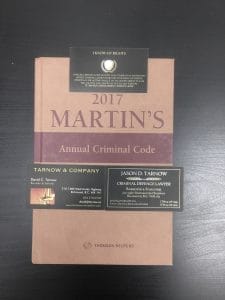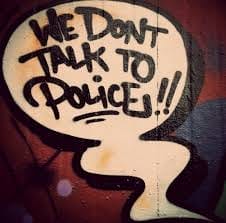by Jason Tarnow | Jul 20, 2017 | Crime, Criminal Attorney, Legal Rights, Politics, Social Media, Uncategorized, Wheels Of Justice
 It is commonplace that first-time offenders rarely have a good understanding of the judicial process. Although it would be fantastic if everyone was fully apprised of their rights and obligations under Canadian law, it is unrealistic. However, I hope that this post will answer a few very common questions we receive on a daily basis.
It is commonplace that first-time offenders rarely have a good understanding of the judicial process. Although it would be fantastic if everyone was fully apprised of their rights and obligations under Canadian law, it is unrealistic. However, I hope that this post will answer a few very common questions we receive on a daily basis.
Lets get started.
Q – I’m looking at my Court documents, and it appears that I am being charged by someone named Regina. Who is she? I don’t even know anyone by that name?
A – Regina is the latin word for Queen. As Queen Elizabeth II is the reigning Monarch, Regina is the term used in legal context. When a male takes the throne, the term will change to Rex, the latin word for King.
Q – My wife and I got into a really heated argument and the police were called. I was arrested and charged with assault, and now there is a no-contact order between us. My wife and I met for dinner last night to talk things over, and we agreed that it was silly to call the police. She would like to drop the charges, how can she do this?
A – In British Columbia, individuals do not press charges, and neither do the police. The police investigate, prepare a report, and recommend charges to Crown Counsel. Crown Counsel then reviews the information and approves or denies charges based on the strength of the evidence. There must be a reasonable likelihood of conviction to pursue prosecution. In short, your wife cannot “drop the charges”. Additionally, since there is a no contact order in place, you cannot contact your wife, directly or indirectly, until the order is lifted. Ignoring the no contact order could result in a Breach charge, landing you in jail.
Q – I’ve been charged with an Indictable Offence. Is that a misdemeanor?
A – The terms “misdemeanor” and “felony” are not rooted in Canada. Those terms are used in the United States. An indictable offence is very serious and carries significantly higher penalties than the less serious “summary offence”. One major difference is that summary offences can only be tried in Provincial Court by a Judge, whereas indictable offences can be tried in Supreme Court by a Judge an Jury. There are also “hybrid offences” which can be prosecuted by summary or indictment – impaired driving is one example. The choice to proceed by indictment is usually because of aggravating circumstances such as a car accident resulting in injuries.
Q – I was arrested for impaired driving and given a Promise to Appear (“PTA”). Several weeks later, I was contacted by the police who told me that the PTA has been cancelled. Does this mean my charges are dropped?
A – In short: no. Your PTA was likely cancelled because the police and Crown Counsel are still in the early stages of their investigation. Once an Accused person has attended their First Appearance, the judicial-delay clock starts ticking. The Supreme Court of Canada recently advised that proceedings in Provincial Court should run from start to finish in no more than 18 months – this means that you must be charged, and proceed to trial within 18 months. If the proceedings take longer than 18 months to be heard, there is probability for the case to be thrown out due to delay. In Superior courts, the proceedings should be completed within 30 months. So, while your PTA has been cancelled, it does not in any way mean that you are off the hook. There is no statute in Canada that prohibits the commencement of prosecution of criminal offences. In the United States, there is no statute of limitations on murder, but there is on sexual assaults and other serious criminal offences.
Hopefully the above information has answered a few of your questions, but likely not all of them. Of course, there are many complex questions that deserve a much more thorough explanation, and we are here ready to answer them.
Whether you have been charged with a minor offence under the Criminal Code such as theft under $5,000, assault, mischief under $5,000 or a more serious offence such as aggravated assault, sexual assault, assault causing bodily harm, or murder, it is crucial that you speak to one of our lawyers prior to making any statements to the police (which we will advise you not to do in any event), or anyone else for that matter. Because, although you’ll hear it from the cops first, I’m telling you again: what you say CAN and WILL be used against you.
We are conveniently located in Richmond, B.C. only a few steps away from Brighouse Station on the Canada Line, which brings you from various locations in Metro Vancouver in 20 minutes. We service all areas of the lower mainland (including but not limited to Surrey, New Westminster, Port Coquitlam, North Vancouver, and Abbotsford) the interior of B.C. (including but not limited to Cranbrook, Kelowna, Kamloops, and Salmon Arm), Northern B.C. (including but not limited to Prince George, Prince Rupert, and Quesnel) and in the Yukon Territory where we offer services in Whitehorse, Dawson City, and Old Crow.
by Jason Tarnow | Jun 28, 2017 | Crime, Criminal Attorney, Legal Aid, Legal Rights, Police, Wheels Of Justice
What you say CAN and WILL be used  you (seriously)!
you (seriously)!
I think it is important to discuss the importance of exercising constitutional rights/freedoms. In particular, the right to remain silent when being questioned by law enforcement about alleged criminal activity.
Why does this seem to be the one freedom that no ordinary citizen wants to evoke? It is understandable of course – to a point. Yes, you want to be respectful and cooperative to with the police in the course of their investigation. This means conducting yourself maturely and appropriately, and politely advising the officer that you wish to exercise your right to silence – meaning you do not wish to have any further discussions whatsoever.
And you definitely are not taking the lie detector test.
There is a difference between cooperating and conceding. Exercising your constitutional right to remain silent does not indicate guilt – it does absolutely nothing except protects your best interests, liberty, and quite literally your freedom (depending on circumstances).
Assuming guilt as a result of silence is what’s known as an adverse inference – and in the realm of criminal justice in Canada, an Accused person is protected from such an insinuation. So, there really is no downside to the advice that seems to evade people during times of crucial importance: don’t talk to the police. Remain silent. Protect your best interests. Seek legal advice. Trust the guidance you receive from seasoned legal professions. We have dedicated our livelihood to protecting the fundamental and inherent rights awarded to every single individual in this country – but in order to obtain the best possible outcome, you, the client, must have confidence in your legal counsel’s ability as your advocate.
This is best demonstrated by being mindful of the first piece of advice you will receive: DO. NOT. TALK. TO. POLICE.
Instead, advise them that any dealings they wish to have with you should be done through your criminal defence lawyer. Once retained, a criminal lawyer becomes the conduit between you and the police. This not only ensures that all communications will be appropriate and methodical – it also provides a new point of contact for the police generally.
Here is a short (non-exhaustive) list of circumstances under which seeking legal advice is strongly recommended:
1) You have been arrested and charged with a criminal offence;
2) You have been contacted by the police for a statement, interview, etc and you are unsure if you are being looked at as a suspect;
3) There is a warrant out for your arrest; or
4) You have reason to believe you will be investigated, arrested, or charged in the near future.
We are conveniently located in Richmond, B.C. only a few steps away from Brighouse Station on the Canada Line, which brings you from various locations in Metro Vancouver in 20 minutes. We service all areas of the lower mainland (including but not limited to Surrey, New Westminster, Port Coquitlam, North Vancouver, and Abbotsford) the interior of B.C. (including but not limited to Cranbrook, Kelowna, Kamloops, and Salmon Arm), Northern B.C. (including but not limited to Prince George, Prince Rupert, and Quesnel) and in the Yukon Territory where we offer services in Whitehorse, Dawson City, and Old Crow.
Whether the crime is violent (assault, aggravated assault, sexual assault, assault causing bodily harm, manslaughter, murder), financial (fraud over/under $5,000, possession of stolen credit cards, forgery), or falls under any other category, the experienced criminal defence lawyers at Tarnow Law Offices are well equip and ready to help navigate you through this difficult time from start to finish.
by Jason Tarnow | Mar 9, 2017 | Crime, Criminal Attorney, Legal Rights, Police, Social Media, Wheels Of Justice
The scales of justice weighed in favour of an Accused woman earlier this week, when the Ontario Superior Court upheld her acquittal of impaired driving related charges in Ontario.
Kimberly McLachlan was acquitted of impaired driving in August 2015 after she succeeded in having evidence inadmissible at Trial – her breathalyzer readings, to be specific. This is known as a Charter application, as it seeks to have evidence excluded based on a breach of a Charter protected right.
Her application was based on the fact that when she taken to the police detachment, where she was required to provide a breathalyzer sample, the arresting officers’ had her stand on a scale so that they could have an accurate record of her weight.
Unfortunately, their attempt to be thorough actually triggered a breach of Ms. McLachlan’s section 8 under the Charter – providing protection against unreasonable search and seizure.
It is not part of standard procedure that the police would weigh a person who has been arrested on suspicion of impaired driving. The Judge confirmed that weighing a person is a violation similar in nature to taking bodily fluids (such as a urine or blood) without a warrant.
It is nuances like this – something seemingly harmless – that will catch the attention of a skilled criminal lawyer. Circumstances like these demonstrate the necessity of hiring a criminal lawyer who is familiar with Charter protected rights.
Impaired driving is a particularly complex offence, with a variety of available defences that must be reviewed in tandem with your unique circumstances. Contact our office today for a consultation that will allow us to come familiar with your situation.

by Jason Tarnow | Mar 1, 2017 | Crime, Criminal Attorney, Police, Wheels Of Justice
Dialogue surrounding mental illness echoes from the walls of nearly every courtroom across the country, which won’t come as a surprise to anyone. When dealing with an Accused person, both Crown and Defence will investigate what their client’s state of mind was like during the commission of the offence – it speaks to intent, which is a very important component in analyzing the intricacies of criminal behavior.
If Crown Counsel proceeds by way of Indictment (as opposed to summarily), the Accused will have the option of having their case heard by a Judge and Jury. If they so choose to have a Jury, members of the public will receive a summons to attend Jury Selection. Some will be chosen, and some will be dismissed. All who are chosen to sit on the jury will not have a say in what their role will be – they are bound by civic duty to fully participate.
Lengthy criminal trials are not uncommon – Robert Pickton’s Trial in 2007 lasted nearly a year, with lawyers calling 129 witnesses, and generating over 1.3 million documents. 129 individuals providing testimony, often gruesome and violent in nature, falling on the ears of 12 every day citizens, none of whom requested to put their lives on hold for a year. Jurors are required to view photo and video evidence, regardless of how brutal those images may be.
But, what happens to jurors once the Trial is over? One would assume that they gladly return to the nuisances of the life they had before the Trial. Sadly, however, many never return to their normal lives.
Post-Traumatic Stress Disorder is often associated with mental illness – however, this is not a fact. PTSD is a psychiatric injury. After repetitive exposure to traumatic situations, the human psyche may succumb to the disturbance. This is rarely immediate – recurring nightmares or overwhelming thoughts are normal to a point. Fresh events remain fresh in our minds.
It is the fog, cotton-in-your-ears feeling, and anxiety that will indicate the onset of PTSD weeks or months after the trauma has occurred. It can be a very isolating and numbing experience – and for whatever reason, societal stigma or taboo, people tend to carry a lot of shame with their PTSD diagnosis. And it is no different for jurors like the ones who sat on Pickton’s jury.
After hearing weeks of testimony, a juror can feel a genuine, bona fide connection with the victim(s). This is amplified when the victim’s family and friends are present for the Trial. Huge internal conflict can erupt when a juror must balance their responsibility and duty to the Court with their own morals and values. This internal back-and-forth is another burden, on top of what they have seen and heard, that they will be left to deal with on their own when jury duty is over.
So what responsibility does our government have to jurors afflicted with PTSD as a result of their participation at Trial? It would not be absurd to consider them as victims of crime. As such, they should have access to every single resource that is made available to the victims of first instance.
Last month in Ontario, the provincial government began offering free counselling for juror members, available either at the end of the coroner’s inquest, or at the end of the Trial. Only time will tell how receptive jurors are to the program, which sadly, hangs on the willingness of individuals to fight against PTSD and its crippling side effects.
by Jason Tarnow | Jun 2, 2016 | Crime, Criminal Attorney, Media, Police, Politics, Social Media, Wheels Of Justice
Distracted driving. It’s a hot topic these days – it seems that technology is steadily advancing, while our common sense refuses to evolve. It’s an issue that, in some ways, exploded overnight. Ever since our provincial government implemented the Immediate Roadside Prohibition scheme, the focus has been centered on impaired driving. As the number of drunk driving related fatalities (supposedly) continues to fall as a result of the IRP system (in fact our Government now says that distracted driving is the leading cause of death on roadways in BC), lawmakers have narrowed in on distracted driving – to be specific, reanalyzing the financial and disciplinary consequences of being caught while talking on an electronic device while driving. Brace yourselves: the pain train is coming.
If you’ve been using your phone while driving, trying to send that one last text, or fumbling with your playlist while going unnoticed, all the while scanning intersections for police cruisers…well, today’s the day you might want to quit. As of June 1, 2016, fines handed out by police have increased from $167 to $368. Further, a driver will now receive 4 penalty points instead of 3 – and 4 points is all that’s required for a $175 penalty towards your insurance. So basically, on your first offence, it’ll cost you $543. If you get caught a second time within 12 months, that penalty will cost you $888, and you risk losing your license for 90 days (click here to be redirected to the ICBC penalty point premium information page).
It’s important to remember that although nearly every article you’ll read about this topic will use the term distracted driving, the real offence that is being described is the use of an electronic device while driving. You are still safe to drink your coffee and eat your bagel (for now) (and please do so responsibly). Please remember that driving with your cellphone wedged between your shoulder and ear isn’t a legal loophole – it almost worked for this guy, but he lost on appeal). Also make sure to check out this post which touches on the hypocrisy of one of RoadSafety’s policies.
It’s also important to remember that the tickets handed out for this offence are not criminal charges, rather, they are issued under the Motor Vehicle Act. As of right now, these violation tickets are still heard before a Provincial Court Judge within the jurisdiction of issue. The offices of Tarnow & Company and Jason D. Tarnow Law Corporation are both well equip with criminal lawyers to handle the trials of these matters, in any jurisdiction of the lower mainland, including but not limited to Richmond, Vancouver, Surrey, New Westminster, etc.
If you receive a ticket for talking on your cellphone while driving, or any other section of the Motor Vehicle Act, contact our office within 30 days (time limit for dispute) of receiving the ticket for advice regarding the best course of action. We also handle appeals of driving prohibitions that come as a result of an unsatisfactory driving record.
by Jason Tarnow | Apr 21, 2016 | Crime, Criminal Attorney, Legal Rights, Media, Police, Politics, Wheels Of Justice

Hip hop star Snoop Dogg played a DJ set at Vancouver’s Fortune Sound club on Saturday, April 17, 2016. His travel into Canada, however, was met with resistance by officials at the Canada Border Services Agency (CBSA) – which isn’t anything new for Snoop. He frequently encounters complications when crossing international borders – to note, he was recently hassled by officials in Italy for carrying around $400,000 cash, and was banned from entering the UK in 2006, after he and his posse were denied from British Airways’ First Class Lounge. A brawl ensued, and ultimately, Snoop was permanently banned from entering the United Kingdom (and ever flying on British Airways again). Snoop has previously been arrested for other criminal offences with respect to firearms, assault, and narcotics.
It is presumed that Snoop was referred for secondary screening by CBSA as a consequence of his clear endorsement of cannabis. Cannabis is widely used across the US, and is legal in several states for medicinal and recreational purposes. It’s just as frequently accessed by Canadians, and we intend to catch up to our southern neighbors pretty soon (The Liberal government announced that Federal legislation to legalize and regulate marijuana will be making its way to Parliament in Spring 2017).
Understandingly, the rapper became enraged at what he observed when he cruised down a back alley in Vancouver’s Downtown East Side – a district riddled with intravenous drug users, disorder, etc. In his Instagram video (link here), Snoop vocalizes his disdain at how Canadian Border officials dealt with his entrance into the country. To sum it up, he basically shames the Canadian Government with respect to how its priorities are organized – clearly indicating that the prevalent opioid use in Vancouver’s DTES should be viewed as a much more serious issue than a little bit of weed.
Anyone with knowledge of the differences between marijuana and heroin knows which is the lesser of 2 evils – so it does seem contradictory that we not only condone the use of heroin on the DTSE, but seemingly encourage and accommodate it, too. Insite (which is located near where Snoop’s gig was) is a publicly funded program, and its main goal is harm reduction. The idea is that if we are able to monitor heroin use, we will be able to minimize the number of overdoses, and prevent individuals from sharing and disposing of syringes and other tools. As you might guess, the venture isn’t cheap.
The Court of public opinion on law enforcement priorities is harsh, swift, and unforgiving. Snoop’s Instagram rant has received hundreds of thousands of views, and his sentiments were shared by the majority of viewers. If you consider the amount of money that has been directed towards Insite, and the amount of money that is spent annually on investigating and prosecuting marijuana related offences, it’s easy to understand why people are so frustrated with our Government’s stance on cannabis policy. Hypocritical, controversial, and contradictory are the best 3 words to describe our Government’s prerogative on combatting one deadly drug, while ever-so-slowly recognizing the innocuous nature of another.
In any event, it’s fair to say that Snoop Dogg is tired of the chronic problems he encounters when travelling from one place to another – my guess is that he’ll continue to hash it out with border officials. The grass isn’t always greener on the other side, anyways.
In the decades that we have been practicing criminal law, we have rarely, if ever, seen a violent crime associated with simple marijuana possession or use. Violence is more frequently associated to drugs like cocaine, heroin, and methamphetamine. If you have found yourself in a situation that involves criminal charges related to any of the aforementioned, or any other area of criminal law, call our office at any time for a free consultation.
 It is commonplace that first-time offenders rarely have a good understanding of the judicial process. Although it would be fantastic if everyone was fully apprised of their rights and obligations under Canadian law, it is unrealistic. However, I hope that this post will answer a few very common questions we receive on a daily basis.
It is commonplace that first-time offenders rarely have a good understanding of the judicial process. Although it would be fantastic if everyone was fully apprised of their rights and obligations under Canadian law, it is unrealistic. However, I hope that this post will answer a few very common questions we receive on a daily basis.


